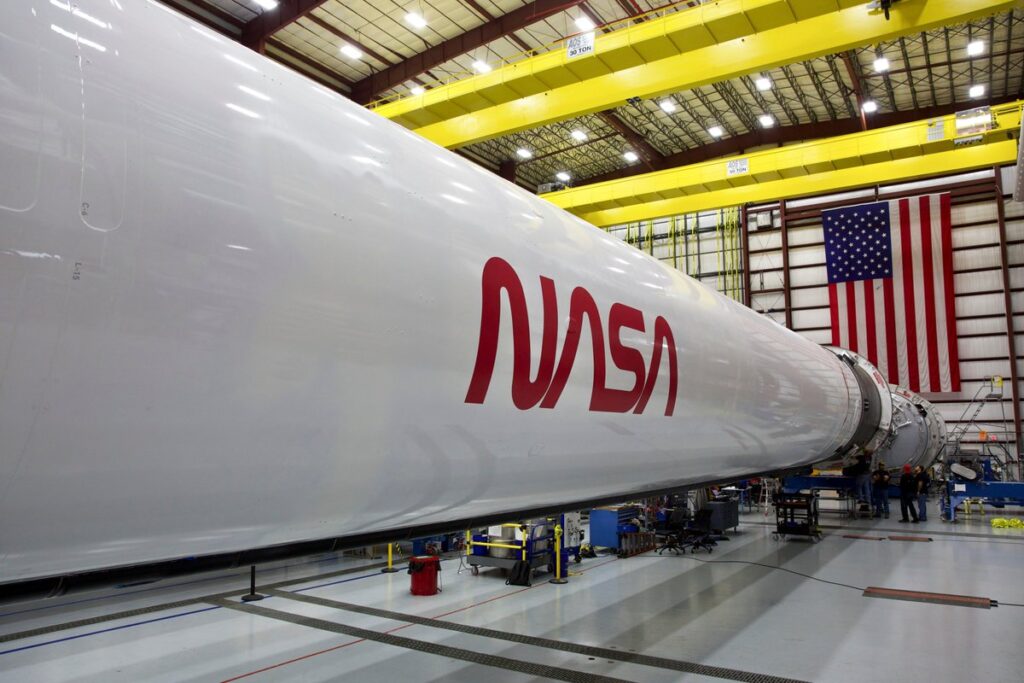With the live music business sidelined, “virtual” concerts like Live From Out There are growing increasingly popular and successful — even without superstars.
Get the latest international news and world events from around the world.
Meet Ai-Da, the world’s first AI artist, who is almost human
Ai-Da is the world’s first ultra-realistic artist robot powered by AI and named after Ada Lovelace, the first female computer programmer in the world. She is a humanoid with human facial features and a robotic body created by the Oxfordians, a group of cutting-edge art and technology experts. Embedded with a groundbreaking algorithm, she has taken the scientific and art world by surprise, now becoming an intense subject of conversation in over 900 publications worldwide. She has already collaborated with Tate Exchange and WIRED at the Barbican, Ars Electronica, and will be performing at the Louvre Abu-Dhabi later this year.
Here, she discusses what it means to identify as a creative without a consciousness with Futurist Geraldine Wharry.

COVID-19–associated Acute Hemorrhagic Necrotizing Encephalopathy: CT and MRI Features
This is the first reported case of COVID-19–associated acute necrotizing hemorrhagic encephalopathy. As the number of patients with COVID-19 increases worldwide, clinicians and radiologists should be watching for this presentation among patients presenting with COVID-19 and altered mental status.
Home Radiology Recently Published PreviousNext Reviews and CommentaryFree AccessImages in Radiology COVID-19–associated Acute Hemorrhagic Necrotizing Encephalopathy: CT and MRI FeaturesNeo Poyiadji, Gassan Shahin, Daniel Noujaim, Michael Stone, Suresh Patel, Brent Griffith Neo Poyiadji, Gassan S…

Over 100 Years Ago, Artists Were Asked to Depict the Year 2000, These Were The Results
Here’s something I think you’ll find quite interesting… These crazy images were created by French artist Jean-Marc Cote, and a few others back in 1899, 1900, 1901, and 1910.
The point being… Well, basically they were asked to imagine what life would be like in the year 2000. According to Collective-Evolution, these artworks were originally in the form of postcards or paper cards enclosed in cigarette and cigar boxes.
The images depict the world as it was imagined it would be like in the year 2000. Some of these unique illustrations are actually quite accurate vision of the current era today, including farming machines, robotic equipment, and flying machines. Now we haven’t started riding giant seahorses yet, although it does look like one hell of a good time.

Scientists Discover New Neurodegenerative Disorder That May Provide Clues to Alzheimer’s
Dr. Susan White and her genetics team treated two triplets from a family who had an undiagnosed neurodegenerative disorder in 2014. After one year of age, the children’s developmental skills declined. They lost visual coordination. Feeding and swallowing food became impossible. The children developed intractable seizures.
Exactly what led to their neurodegeneration was a mystery.
“As you can imagine, that was just a horrendous experience for their family and we suspected a genetic condition because of that pattern of problems occurring in both children,” White, an associate professor at Murdoch Children’s Research Institute (MCRI) and Victorian Clinical Genetics Services (VCGS), said in an interview with Being Patient.

NASA Worm on Falcon 9 but do you know the story behind it?
Yes, that’s right. The classic NASA “worm” logo is back! An image of the revived NASA worm logo was released on Twitter by NASA Administrator Jim Bridenstine as well as press release on the NASA.gov website.
NASA explained that original NASA insignia is an iconic symbol widely recognized in the world. The NASA “meatball” logo as many know it by represented patriotic American colors. A red chevron wing piercing a blue sphere(Planet) with white stars, and an spacecraft orbiting. This “meatball” logo was not easy to reproduce with 1970’s technology so the Federal Design Improvement Program introduced in 1975 a new logo, the “worm.”
Some History about the logo

The Next Economic Meltdown Will Transfix The Real Estate Market As We Know It
Are we in for the Big Short II? The cyclical nature of markets spells an eventual collapse of the real estate prices in the U.S. following the next global stock market meltdown and global recession which will be drastically different the next time around. For one, the coming collapse is about to start a secular declining trend in property values. Secondly, after the collapse, the prices of properties won’t be able to recover like they did after the previous “property market corrections.”
Why? I hope we all may agree that oil, for example, will never recover to all-time highs. Similar premises hold true for the existing home values. There are multiple major socio-economic structural changes on the horizon contributing to this permanent decline which is in the cards right now. Also, many conventional linear projections won’t even apply anymore.
THE NEXT “CYCLICAL” GLOBAL RECESSION — the world’s stock markets are the best indication of things to come in the economic milieu. The next financially engineered global recession may be the last effort by the capital-controlling elite of Wall Street to keep political and economic control over the global population and maintain the faltering capitalist system as long as possible;


